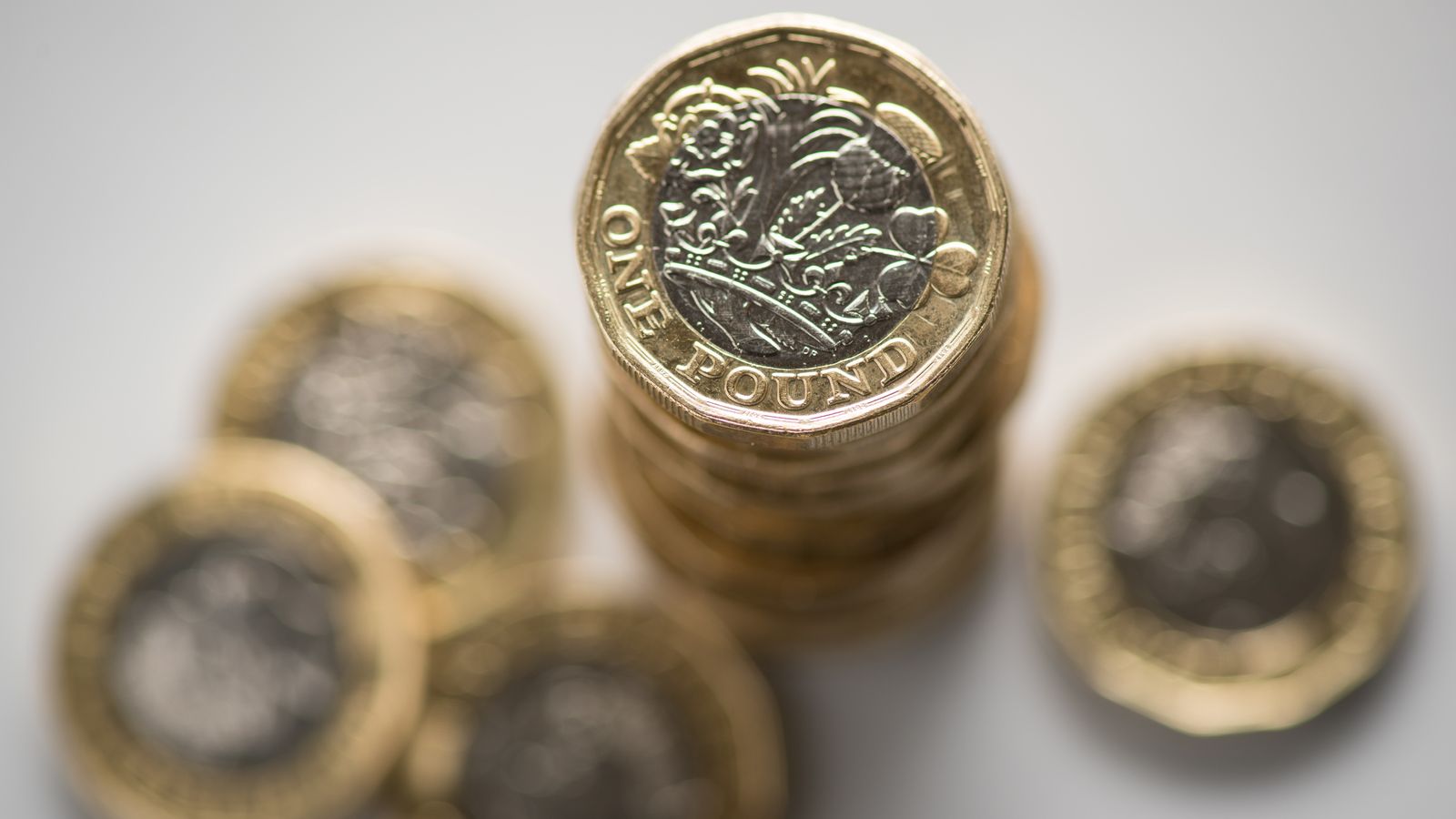Jeremy Hunt’s autumn statement has failed to offer much cheer to markets, with both stock indexes and the pound all below their opening mark.
Sterling had already fallen around 0.5% – going from $1.193 to $1.1850 – by the time the chancellor rose to his feet in the Commons.
But after he had finished, it had fallen to the $1.183 mark – down about 0.6% – and continued to fall to $1.180 (down almost 0.9%) by 12.45.
The FTSE 100 was down 0.65% at 12.15pm, while the more domestically-focused FTSE 250 had fallen almost 0.3% during the day, from an earlier loss of 0.4%.
However, both indexes started to claw back some of their losses after Mr Hunt’s speech concluded.
Shares in Shell and BP were down 0.45% and 0.65% respectively following news that the energy profits levy would be increased from 25% to 35% from next year.
Susannah Streeter, senior investment and markets analyst at Hargreaves Lansdown, said: ”Share prices of energy generating companies have retreated rapidly as it became clear that the Treasury will scoop up more money which has been falling into their profit baskets as gas prices soared.
Autumn statement: Key announcements from chancellor at a glance
Autumn statement: Millions to pay more in tax as chancellor cuts top-rate threshold and lays out plan to plug ‘black hole’
What does autumn statement mean for you and economy? Submit a question
“A much bigger slice of profits of energy giants such as BP and Shell will now also be raked in, with the energy profits levy increased from 25 per cent to 35 per cent.
“The door was inched open even further on the case for a windfall tax following comments made by Shell’s outgoing boss, Ben Van Beurden, that the tax burden had to fall on the energy sector to help the poorest in society.
“That’s partly why the reaction has been relatively muted in terms of their share prices.”
The windfall tax will also be extended to electricity generators and this saw SSE drop 3.5%, wind farm operator Orsted down 2.2% and Drax down 3%.
Ms Streeter said there was a risk for the government that energy prices would fall, limiting what could be creamed off in tax – but she added that they have so far been “highly volatile and may tick back upwards as cold weather is set to sweep into Europe”.
A Shell spokesperson said: “As well as raising revenues to support people, taxes should be designed to provide incentives for investment to address the underlying supply problems that are causing high prices now, and to drive the vital, longer term transition to a low-carbon energy system.
“To deliver the very significant investment needed, which for Shell UK will be up to £25bn in the next 10 years, the energy sector needs to have confidence that there will now be a stable investment climate following a period of considerable uncertainty.”
Government bonds edged lower, while bond yields – which were already up before Mr Hunt’s statement – rose further.
The benchmark 10-year gilt yield was last up seven basis points to 3.21%, while the two-year yield rose 12 basis points to 3.104% having traded at around 3.07% just before Mr Hunt started speaking.






















